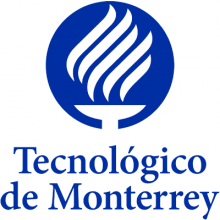About Graz University of Technology
Dating back to 1811, Graz University of Technology (TU Graz) is a respected institution specialising in technical and scientific subjects.
The university was founded by Archduke Johann, who donated his extensive scientific collection to found an institution in Graz. Over 200 years the university has developed extensively, from opening its doors to women in 1919 to launching cooperative programmes with China in 2016.
Since 2004, TU Graz has had seven faculties: Architecture, Civil Engineering, Computer Science and Biomedical Engineering, Electrical and Information Engineering, Mechanical Engineering and Economic Sciences, Mathematics, Physics and Geodesy and Technical Chemistry, Chemical and Process Engineering and Biotechnology.
When it opened in 1811, the university was based out of the stunning 16th century Lesliehof building. However, the university soon outgrew these premises. It has since expanded to three campuses in and around Graz: Alte Technik, Neue Technik and Inffeldgasse.
TU Graz has produced several notable scientists, including the Nobel Prize winning chemist Richard Zsigmondy, the inventor Hans List and battery scientist Karl Kordesch. The world famous scientist Nikola Tesla was a star pupil of the university during his first year, but subsequently dropped out after developing a gambling addiction.
Graz is the capital of the Austrian state of Styria and the second-largest city in Austria. Despite its size the city has a laid-back feel, full of parkland and coffee shops. As well as TU Graz, there are three other universities around the city, and the thousands of students contribute to a lively cultural scene and nightlife.
Explore these featured universities
Explore rankings data for Graz University of Technology
Compare universities on their key stats
Key statistics
- 8.3No. of students per staff(1)
- 25%Percentage of International Students(1)
- 26 : 74Student Ratio of Females to Males(1)
- 24%Proportion of ISR Publications(1)
- 6,627Number of FTE Students(1)
Subjects taught at Graz University of Technology
Engineering & technology
- Mechanical & Aerospace Engineering
- Electrical & Electronic Engineering
- Civil Engineering
- General Engineering
- Chemical Engineering
Life sciences
- Biological Sciences
Physical sciences
- Geology, Environmental, Earth & Marine Sciences
- Chemistry
- Mathematics & Statistics
- Physics & Astronomy
Education
- Education
Business & economics
- Business & Management
Computer science
- Computer Science










